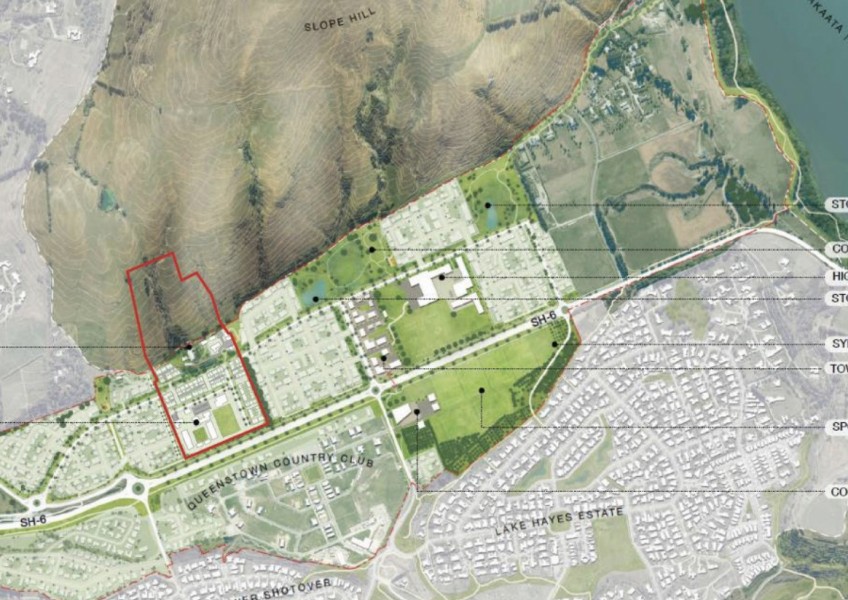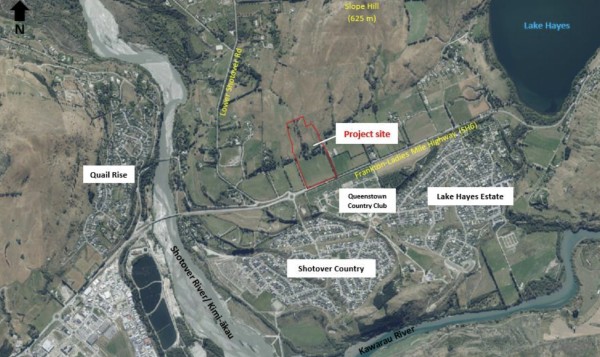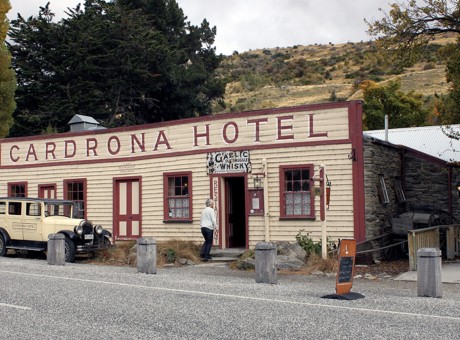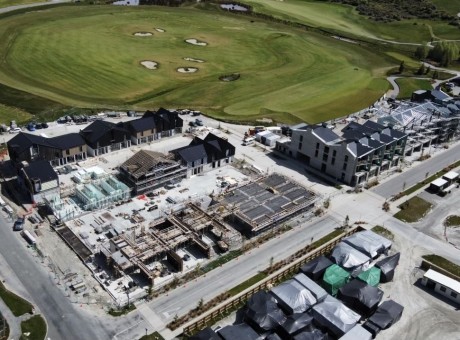Government fast-tracks large Ladies Mile subdivision

The Government has approved a large development along Ladies Mile, using the Covid fast Track consenting scheme.

Developer Lindsey Topp
The Flint's Park West project is a medium-density housing development on Ladies Mile.
The developer is Glenpanel Developments Ltd with the directors being listed as Lindsey Topp and Mark Tylden.
The project is to subdivide an 18.4-hectare site and construct approximately 315 residential units (or approximately 180 residential units, a church/chapel and a state-integrated school), supporting infrastructure and public open space, on 8.6 hectares of the land.
Today's approval by Environment Minister David Parker means that the developers could save over 15 months from the normal consenting process.
Mr Topp was involved in a failed bid to build a medium density subdivision on the other side of Ladies Mile, a project that has now morphed into a more expensive low density project.
The new application includes the following details:
At least 179 residential dwellings including:
- at least 105 walk-up apartment units (within a three-storey apartment building, including semi basement parking)
- at least 21 terrace houses
- 17 lane or courtyard-accessed townhouses
- 36 free-standing or duplex dwellings.
- a primary school (if endorsed by the Ministry of Education)
- an early childhood centre
- a mixed-use development in the south-eastern part of the site, comprising small home offices, some retail or cafes, and professional and personal services to support the surrounding development
- a small amphitheatre at the northern side of the development, suitable for a range of community events and arts
- associated subdivision and construction of three-waters infrastructure, roads and reserves
- recreational trails, including a bush gully and walkway.
The application also included this location guide.

The location of the Flints Park West Development.
You can read the full approved application here.
Here is today's announcement in full:
Projects could create more than 18,000 jobs
- Over 8000 houses receive fast-track consent
- Fast-track process have saved, on average, 15 months per project
The Government has approved three more projects under the fast-track consenting process, bringing the number of projects that are eligible to apply for resource consents to 50.
The COVID-19 Recovery Fast-track Consenting Act 2020 is a key Government lever to grow the economy, boost jobs, speed up infrastructure development and improve environmental outcomes in response to the economic impacts of COVID-19
“I’m pleased to announce NZ Windfarm’s Te Rere Hau windfarm repowering project, near Palmerston North, has been approved as the fiftieth referred fast-track project,” Environment Minister David Parker said.

Minister David Parker
“The other two projects approved are the Waimarie Street project residential development in St Heliers, Auckland, and the Flint’s Park West, Ladies Mile-Te Pūtahi project in the Lake Hayes area, Queenstown.
“To date, the 50 projects referred for approval cover 13 of New Zealand’s 16 regions.
“This includes projects from Northland to Wellington and from Taranaki to Bay of Plenty, as well as in Nelson, Canterbury, Otago and Southland.
“Together they have the potential to create more than 18,000 jobs and build 8,772 houses,” David Parker said.
Seventeen of the 50 projects approved under the fast-track legislation have now obtained consent from an expert panel.
These projects are focused on housing, but also include: the Tauhei Solar Farm (Te Aroha); the Ohinewai Foam Factory; the new Whakatane Boat Harbour; the Hananui Aquaculture project (Foveaux Strait); the new Dunedin Hospital, and various other projects expected to promote employment across the regions.
The fast-track process allows for a shorter consenting process that can boost employment and economic recovery but does not replace or circumvent the environmental tests under the Resource Management Act 1991 and is designed to ensure Treaty of Waitangi and Treaty settlement obligations are maintained.
The Minister for the Environment has declined to use the fast- track process for some proposals where public input using the existing RMA processes was considered more appropriate.
“Approval for projects under the fast-track consenting process provides a significant reduction in the time taken to apply for resource consents as well as provide the job and economic benefits that the act was designed to provide.
“Applicants using the fast-track process have saved, on average, 15 months per project,” David Parker said.
Work is being done on whether some form of the fast track process is carried forward into the new resource management system but no decision has been taken.


























